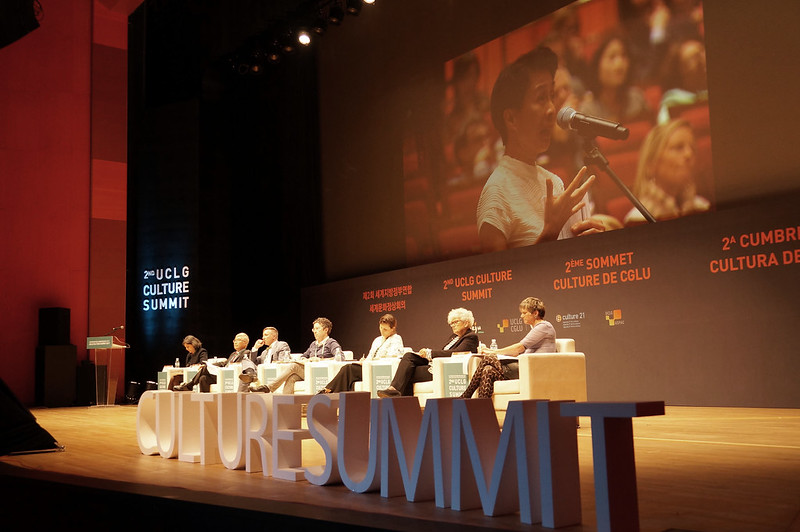Europa Nostra contributes to Summit on Culture and Sustainable Cities in Jeju, South Korea
Europa Nostra’s Council member Claus-Peter Echter presented the outcomes of the ‘Cultural Heritage Counts for Europe’ (CHCFE) project at the 2nd United Cities and Local Governments (UCLG) Culture Summit held in Jeju, South Korea, from 10-13 May 2017. Focusing on ‘Commitments and Actions for Culture in Sustainable Cities’, the Summit aimed to develop and reinforce messages on the role of culture in sustainable development, with a particular emphasis on the importance of cities and local spaces. The summit responded to the growing importance given to the nexus of culture, cities and sustainable development by international organisations and frameworks. Recent milestones include the UN 2030 Agenda for Sustainable Development (adopted in September 2015) and the New Urban Agenda (adopted by the Habitat III Conference in Quito, October 2016). The conference brought together cities and local governments as well as representatives of key partners, such as UNESCO, Europa Nostra, ICOMOS and IUCN, so as to exchange ideas and coordinate activities.
As representative from Europa Nostra, Claus-Peter Echter outlined the key findings of the ‘Cultural Heritage Counts for Europe’ project, especially with a view to Historic Cities, during the session on ‘Evaluating Cultural Impacts’ on 11 May. The CHCFE project clearly demonstrated the positive impact of cultural heritage on the economy, society, culture and the environment, which, thus constitutes a catalyst for sustainable development in Europe.
The Council member also presented major activities of Europa Nostra regarding sustainable development in historic cities during the session ‘Developing a Multi-Stakeholder Platform for Localization of SDG 11.4 on Cultural and Natural Heritage’ on 11 May. The UN 2030 Agenda on Sustainable Development establishes in Target 11.4 (the ‘Heritage Target’) the commitment to strengthen efforts to protect and safeguard the world’s cultural and natural heritage.
With reference to the ‘Cultural Heritage Counts for Europe’ report, Claus-Peter Echter explained how heritage is evaluated in historic towns and villages. By way of example for best practices, he presented the European Union Prize for Cultural Heritage/Europa Awards, which contributes to a stronger public recognition of cultural heritage as a strategic resource for Europe’s society and economy. The projects awarded are outstanding examples of creativity, innovation, social participation and sustainable development in the heritage field throughout Europe. Europa Nostra’s flagship programme, the 7 Most Endangered, also stresses the need for finding sustainable solutions for the projects selected.
Claus-Peter Echter also informed the audience that Europa Nostra and other members of the European Heritage Alliance 3.3 (a platform of more than 40 European or international networks active in the wider field of cultural heritage), like ICOMOS, will collaborate with stakeholders such as IUCN and UCLG in focusing their advocacy efforts for localizing the implementation of SDG Target 11.4.







